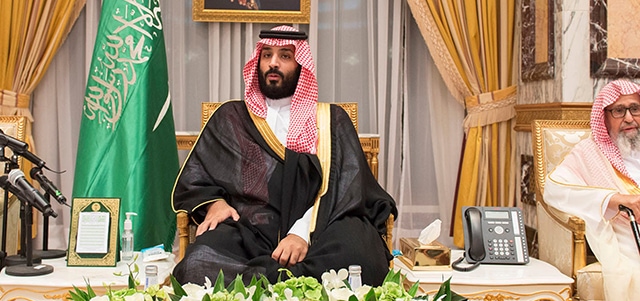Prince Mohammed bin Salman put11 princes and nearly 200 high-ranking officials, under arrest for corruption.

Saudi Crown Prince Mohammed bin Salman, 32, took to the stage at the palatial Ritz-Carlton in Riyadh on October 24 to announce a $500 billion high-tech city, Neom, where robots may outnumber people. Neom, which means “new future,” will be a giant new city, bigger than Dubai, “where there is no room for old thinking,” said the crown prince, also known as MBS.
Less than two weeks later, the Ritz-Carlton was turned into a five-star prison for 11 princes and nearly 200 high-ranking officials, including billionaire businessmen and former ministers, caught up in a long-planned crackdown on corruption. Whether the purge will solidify the growing power of MBS and ensure the success of his modernization drive remains to be seen. Among those arrested was Prince Al-Waleed bin Talal, one of the richest men in the world, with investments in Twitter, Apple, Lyft, News Corporation, Citigroup and the Four Seasons hotel chain.
Analysts warn the arrests could trigger a reaction from parts of the royal family or scare off foreign investors, dooming the Vision 2030 plan for the kingdom’s post-oil economy. “The latest developments are shifting Saudi Arabia further away from the consensus-based policymaking that has maintained a fine balance in the kingdom’s political sphere for decades,” says Jason Tuvey, Middle East economist at Capital Economics. “The big risk is that this could trigger a backlash against MBS that undermines his authority.” Investors could also become unnerved if those detained by the authorities are stripped of their assets, Tuvey adds.
Equity markets elsewhere in the region have generally fared worse than Saudi Arabia’s. “We suspect that this reflects concerns that the kingdom’s increasingly aggressive tone could ultimately morph into a military confrontation,” Tuvey says. “A direct confrontation between Saudi Arabia and Iran seems unlikely; but the threat of a proxy war unfolding, most probably in Lebanon, is building.” Lebanon’s prime minister, Saad Hariri, resigned suddenly on November 4 while in Riyadh, where he has a home, then postponed the resignation, all in the name of stability.



